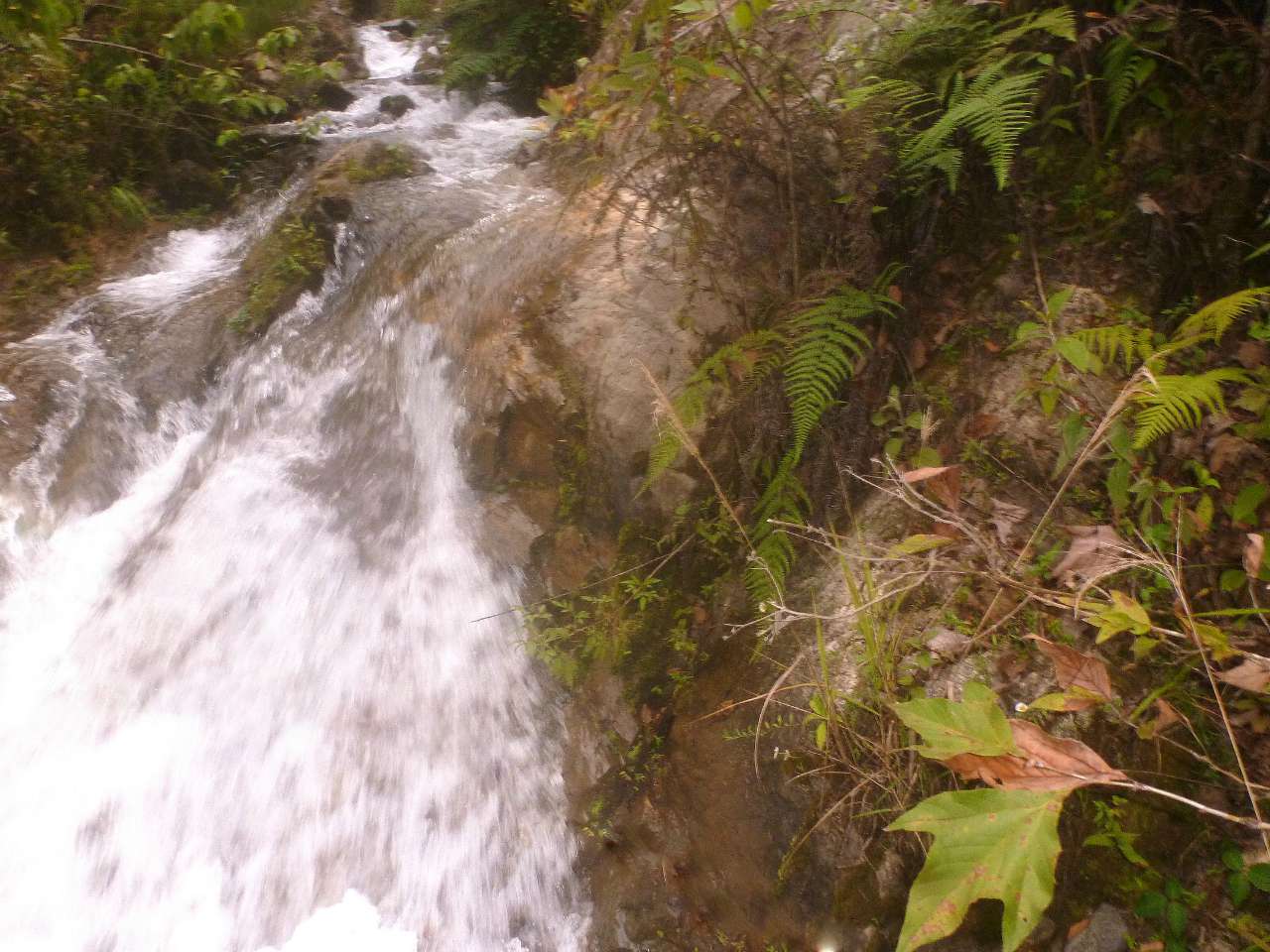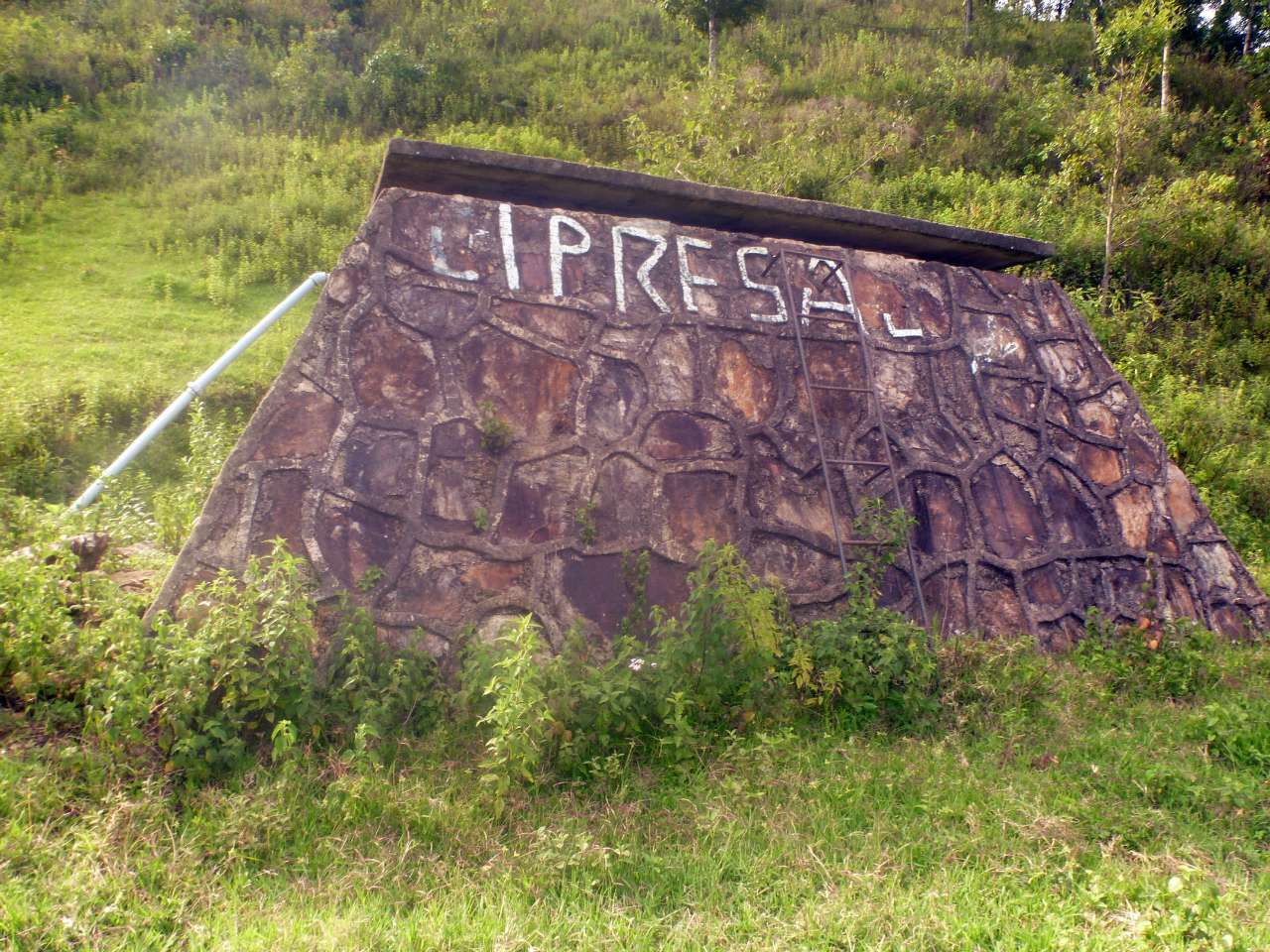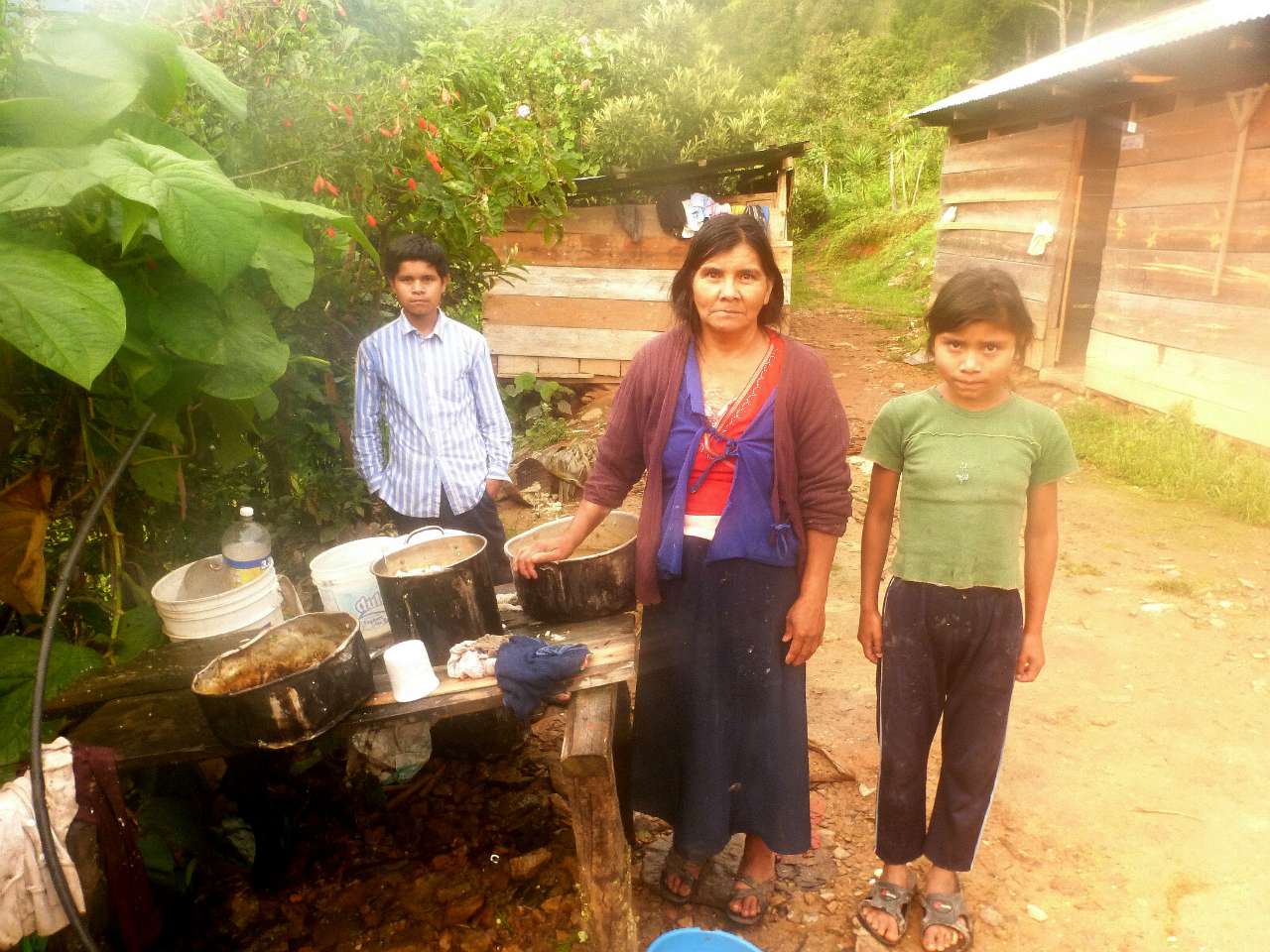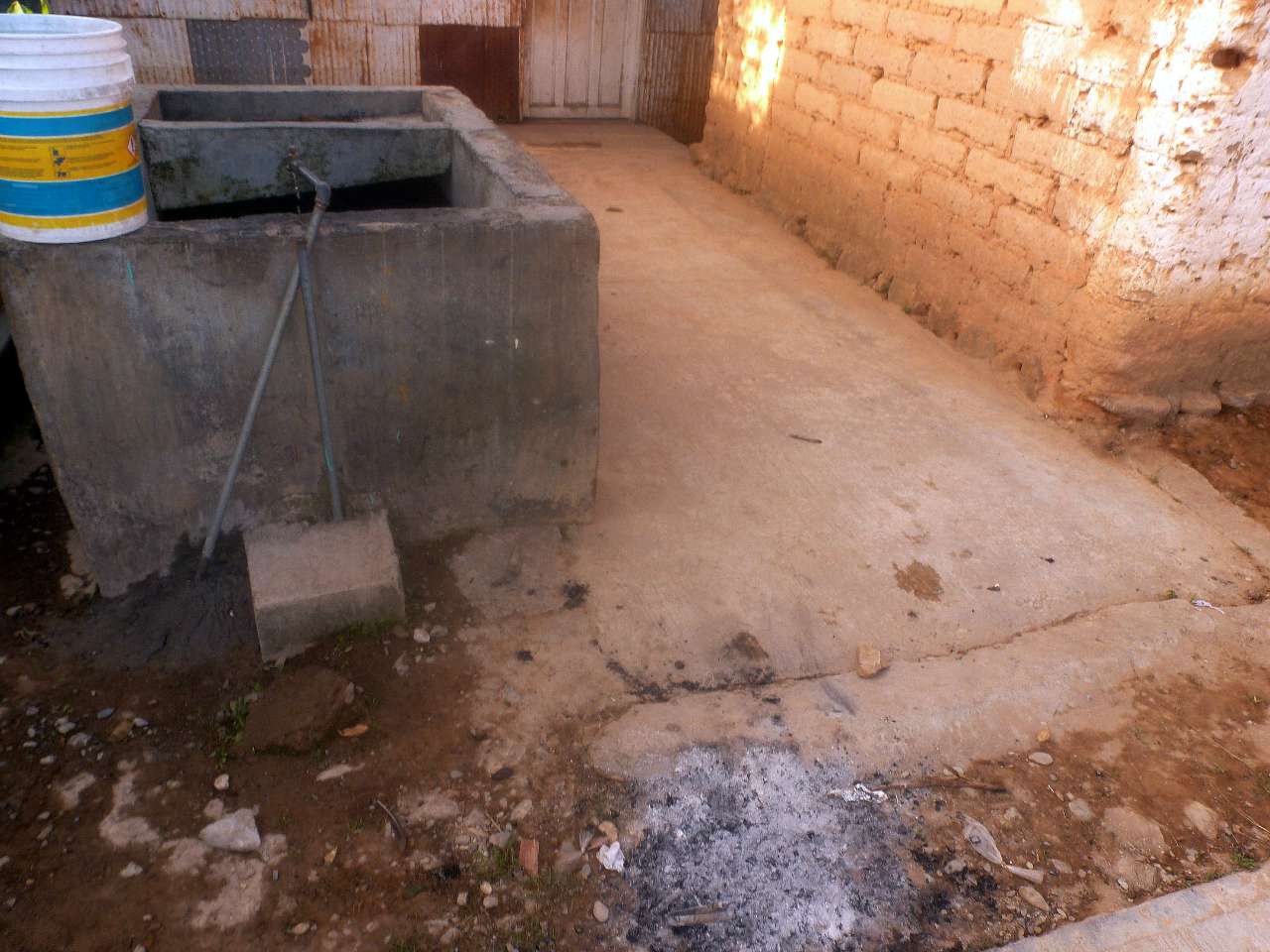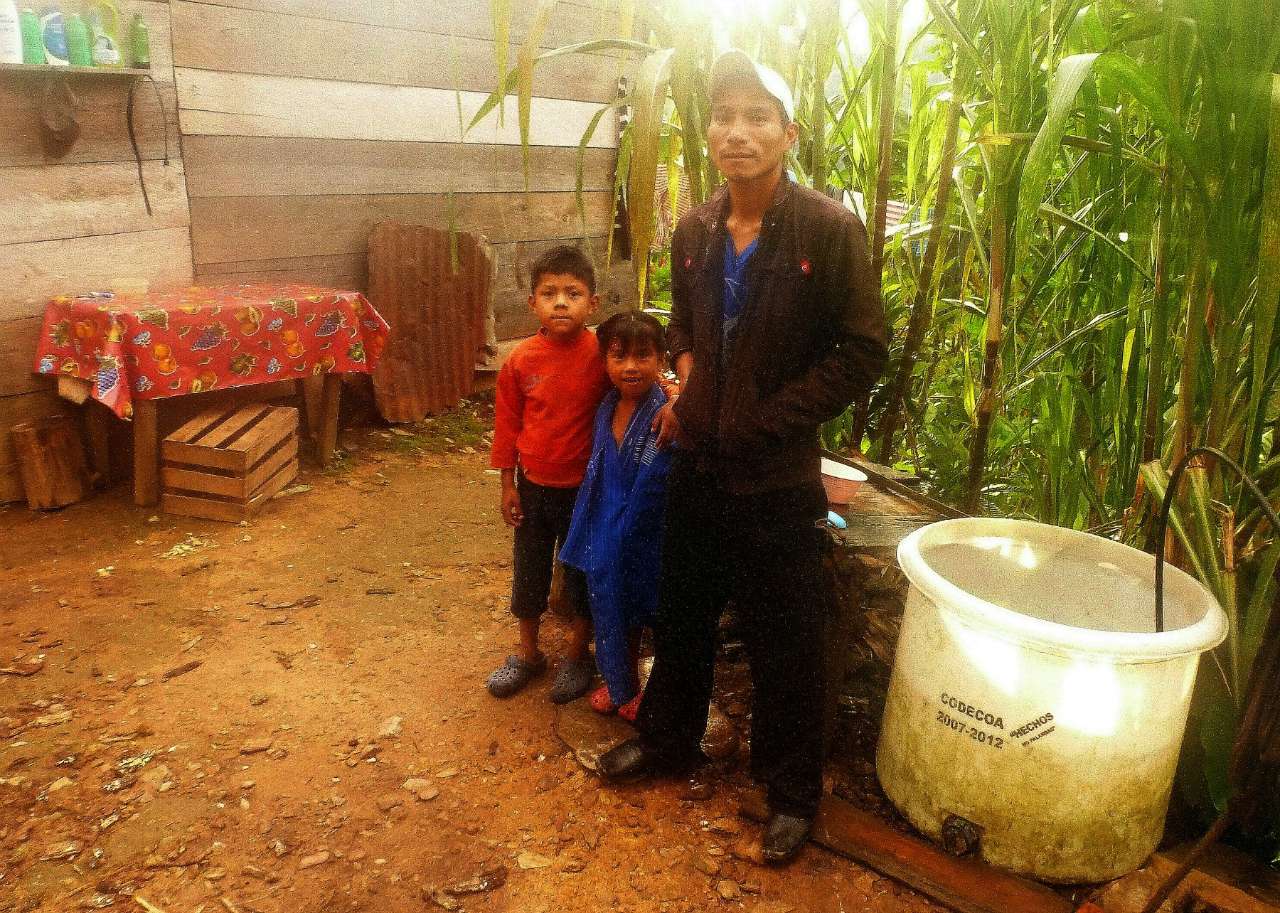This project is made possible through the partnership of WATER CHARITY and the NATIONAL PEACE CORPS ASSOCIATION. ![]()
Location
Cipresal La Cascada, Municipio Siltepec, Chiapas, Mexico
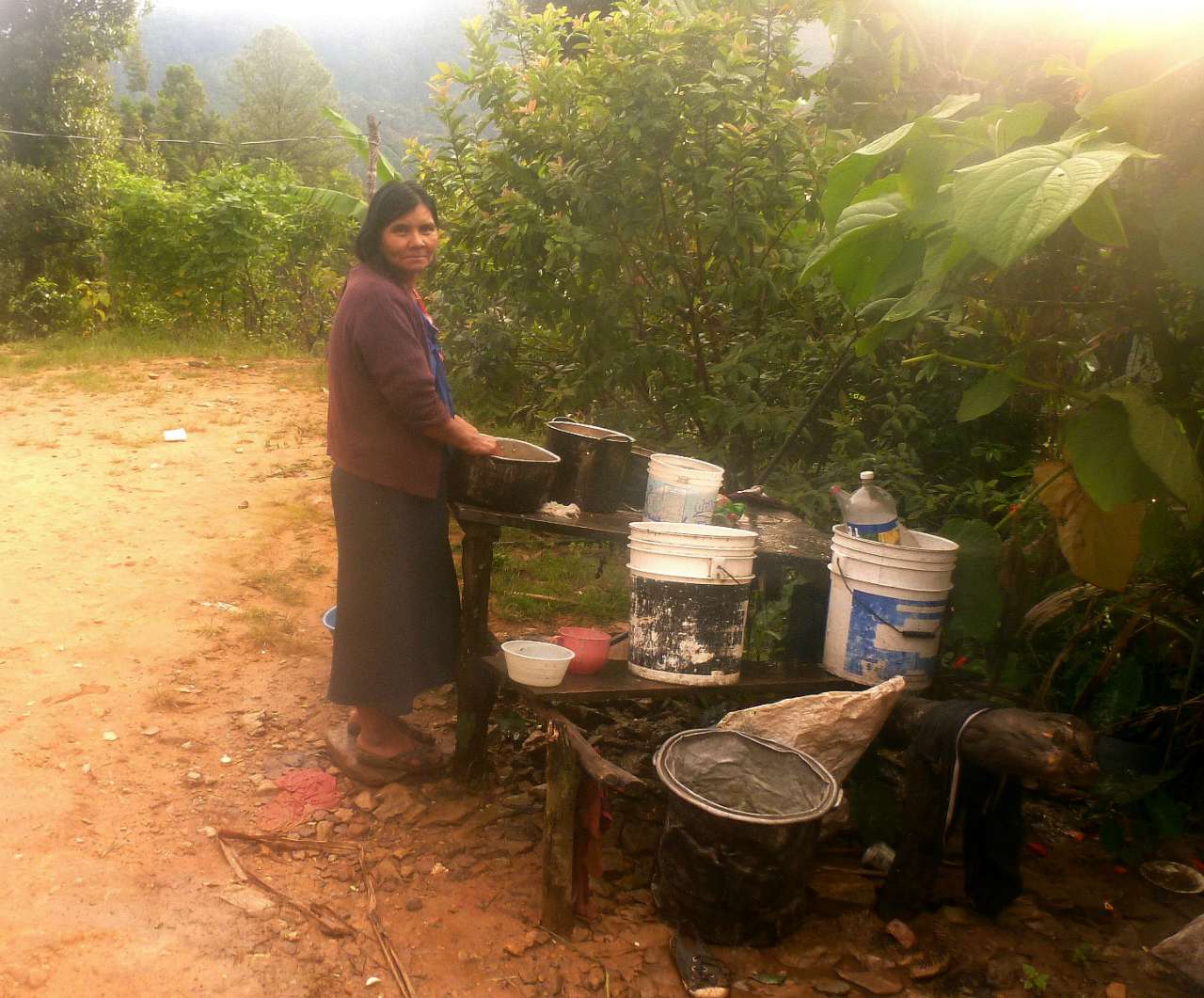 Community Description
Community Description
Cipresal Cascada is home to 146 families with 590 residents. The community is located deep in the Sierra Madre region of Chiapas, Mexico. Homes are spread out over the north-facing slope of rugged mountains. The community is located across a deep canyon that separates it from Santa Domingo La Cascada where Water Charity and the Sexto Sol Center successfully completed a water project in April.
The standard of living in this remote community is very poor. People make their living by growing coffee on small plots on the steep mountainside. In good years, coffee farming provides a meager income. Many families depend on the funds sent home from relatives working in the United States, leaving women to head the household.
Unfortunately, unusually high temperatures in recent years have resulted in the proliferation of a serious blight that has devastated coffee production, with serious economic consequences for peasant farmers throughout Chiapas and Guatemala.
Problem Addressed
Cipresal La Cascada is another of the many communities that have still not recovered from the devastation caused by Hurricane Stan in 2005. In their case, the disaster caused major landslides that effectively changed the landscape by blocking the course of the river they had previously used for their water source. The drought of the past couple of years has reduced the flow of springs and creeks near the communities that a few families were able to rely on previously.
At the time of this writing, the community is experiencing the extreme hardship of living without water while hoping for rain to bring temporary relief. The lack of water is a major factor contributing to the hardship of living in impoverished conditions in the Sierra Madre. When water becomes available, people immediately realize a better quality of life. It allows them to grow food gardens which help alleviate the malnutrition that is rampant in the region.
There are two schools in the community: an elementary school and a kindergarten that serves children aged 3 to 5 years old. The schools do not have water, which causes a lack of adequate sanitation for students, and makes life hard for the teachers who live there.
The community is concerned about retaining teachers given the remoteness of the location. They hope that by improving living conditions for them, specifically providing water for their needs, they will be more likely to continue teaching in the community. The water project will also provide water to the schools.
Project Description
This project is to build a system to provide water for the community. Fortunately, the river 3 km away from the com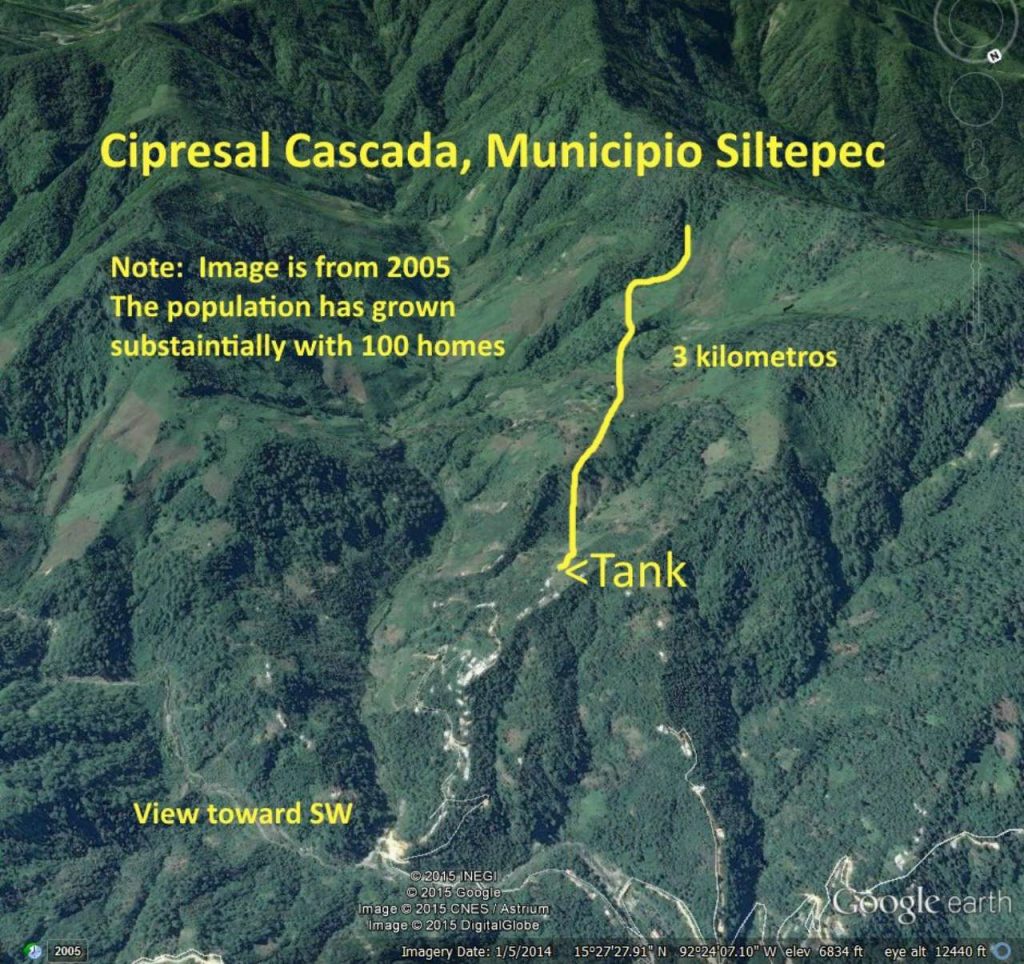 munity is a reliable source of good quality water. The water will be brought to the community through 2-inch poly-duct hose, connected to their existing holding tank.
munity is a reliable source of good quality water. The water will be brought to the community through 2-inch poly-duct hose, connected to their existing holding tank.
Cement will be used to reinforce the interior surface of the tank, to build a catchment dam at the source and to build “rompedores” – small tanks that are necessary to slow the flow and reduce the pressure created when water races down steep grades. These structures also allow for the release of suction that builds in the hose.
To carry out the project, the Sexto Sol Center, a non-profit organization with 20 years of experience in the region, will coordinate and supervise the project until completion. The Sexto Sol Center team has already been working with the existing community committee responsible for overseeing water for the community for several months. This was done to reinforce the commitment of members to participate and strengthen leadership of the group which had not functioned in the recent past since they had no communal water system.
Labor will be done by the men from the community who will work together to open a path through the steep forest, lay down the hose and build the structures needed. They have a plan in place to maintain the water line in the future.
Sexto Sol will organize the logistics of transporting the large rolls of hose from the factory on the coast and to the remote village of Cipresal La Cascada. The hose has a life span of at least 20 years, and is a low-cost material that conforms to the contours of the rugged terrain. The Sexto Sol Center sources the hose from a factory that uses recycled plastic to make it as part of their commitment to reduce solid waste in the estuaries and mangrove forests on the coast. The community will bury the hose several inches deep to prolong its life and protect it from animals and vandals.
As part of the support to be offered to the community Dr. Tamara Brennan will teach the women in the community how to manage their water wisely. Typically, the waste water from washing dishes and clothes is allowed to pool on the ground causing odors and other problems. She will encourage them to channel the waste water to feed plants and use it to expand their gardens. She will also teach the women how to turn discarded plastic into useful things for the home as a way to help the family economy and keep toxic plastic waste out of the watershed.
Project Impact
590 people will benefit from the project.
Project Manager
Tamara Brennan, Ph.D.
Monitoring and Maintenance
The people of the community, and their water board, will be responsible for care and maintenance of the new water system.
Sexto Sol will return to the village on occasion to monitor the system and assist with maintenance as needed.
Comments
This project is part of the ongoing Sierra Madre Water Program, a comprehensive effort to improve water access in the underserved and impoverished Sierra Madre de Chiapas region of Mexico, spanning the border with Guatemala. These projects are designed and implemented by Water Charity and local NGO the Sexto Sol Center for community development. (This is the seventh project directed by Sexto Sol.)
Fundraising Target
$5,700
Funds raised in excess of the project amount will be allocated to other projects in the country.
Donations Collected to Date
$5,700
Dollar Amount Needed
$0.00 – This project has been fully funded through the generosity of Michael and Carla Boyle of Nelsonville, OH, USA.
Any additional donations will go to future projects in Mexico and Guatemala.
This project has been completed. To read about the conclusion, CLICK HERE.
